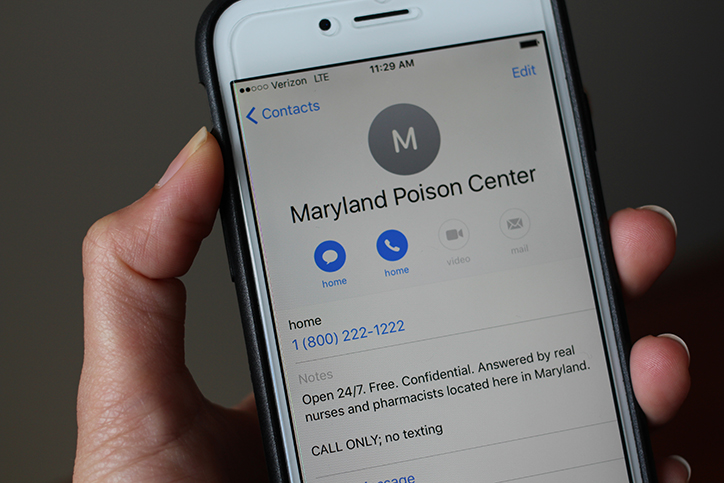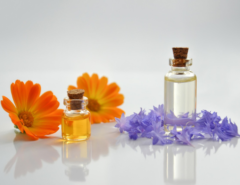September is Emergency Preparedness Month. Let’s look at some steps that families can take to make sure they are prepared for a poison emergency. Remember, if the person is not breathing, is unconscious, or having seizures, call 911 right away. If not, call 1-800-222-1222 to talk to a poison specialist who is ready to answer your call.
At the Maryland Poison Center (MPC), we are often asked what people should have on hand in case of a poisoning or overdose. Our answer is simple: our phone number! Program the number (1-800-222-1222) into your mobile phone and post it somewhere visible in your home. You never know when or where you will be when you encounter a poisoning or overdose. The phone number works nationwide, too. No matter where you’re traveling to or living in the country, the phone number is the same. You will always reach a specially trained pharmacist or nurse ready to help 24/7/365.
If you think someone has been exposed to a poison or has experienced an overdose, perform these first aid steps and call the poison center immediately:
- Poison on the skin: Remove contaminated clothing and jewelry. Then, rinse the skin with lukewarm water for 10 minutes.
- Poison in the eye: Flush the eye with lukewarm (not hot) water poured from a large glass 2 or 3 inches from the eye or directly from the faucet or shower. Do this for 15 minutes. Have the person blink as much as possible while flushing the eye. Do not force the eyelid open; this can result in scratches on the eye.
- Inhaled poison: Avoid breathing in the fumes and immediately get the person to fresh air. Open doors and windows and/or turn on a fan.
- Swallowed poison: If the person is unconscious, having seizures, or having difficulty breathing, call 911 right away. Otherwise, gently wipe out the mouth and give the person a small amount of water. Do not make the person vomit by putting a finger in their throat or giving Syrup of Ipecac, milk, egg whites, mustard, or any other home remedies.
For a one-page information sheet about first aid, download our First Aid for Poisoning Info Sheet.
When you call the poison center, be ready to provide:
- Name of the product and its ingredients: If possible, have the product with you when you call. Specialists may ask a few questions about the product to make sure it matches the one we have in our database.
- Amount of product involved: It is important to know how much of a product is involved with each exposure we handle. Even if you aren’t sure of the exact amount, our specialists will need an estimate.
- Time of exposure: This helps us decide what course of action is best for each exposure.
- Symptoms the person is having: This is extremely important and helps us understand how the body is reacting to the exposure. Specialists will monitor symptoms at home as well as in a health care facility, if the patient cannot be safely treated at home.
- Age and weight of the person: A person’s age helps us determine what kind of treatment to pursue. The way specialists handle an exposure in a child often looks different than it would for an older adult. Specialists may ask for the person’s weight if a medicine has been ingested to help determine if an overdose has occurred. Weight is also used to determine dosing for possible treatments.
- Name and phone number: Collecting this information allows us to call back to check on the person.
- Any first aid measures taken prior to your call: This helps us determine the best next steps for each case.
- Zip code: This is collected for demographic purposes and is for our records only.
For more information about what questions poison specialists ask and why they ask, check out a blog post written by one of our poison specialists titled, “Why So Many Questions?” We also have a page on our website about what to expect when you call the poison center.
As a reminder, be sure to call the Maryland Poison Center at 1-800-222-1222 after performing any first aid actions. Your call is fast, free, and confidential.





Leave a Reply